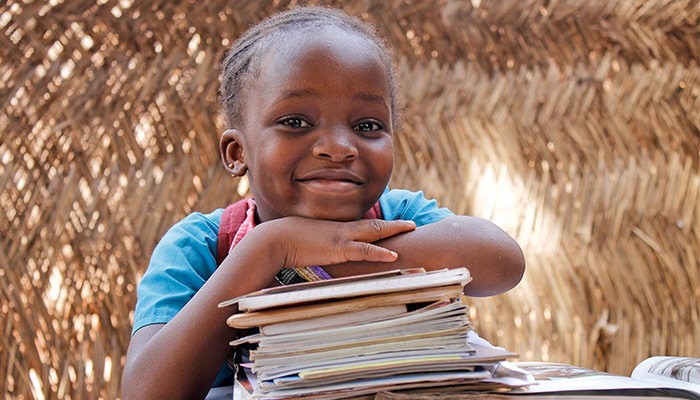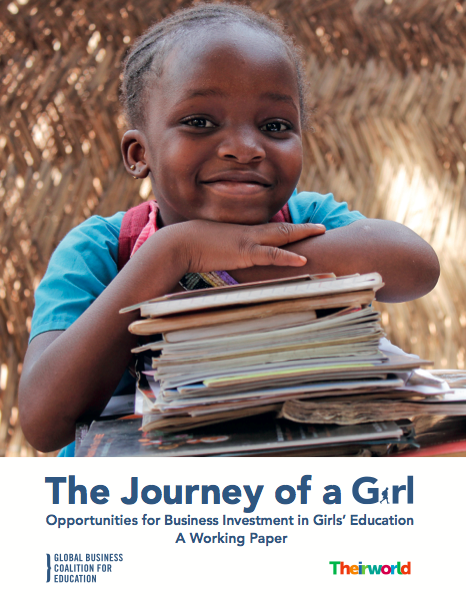Girls’ Education Task Force Releases "The Journey of A Girl"

Photo by ocommerceandculturestock/Getty Images.
Released on the International Day of the Girl Child, ‘The Journey of a Girl’ shows how businesses must invest at every stage of a girl’s education journey to overcome the many barriers that keep her from reaching her full potential. This working paper, commissioned by GBC-Education, surveyed 32 companies investing in girls’ education, and found that while there is a strong focus on empowering girls in the secondary years, less than 10% of corporate education budgets are directed to pre-primary education. The report argues that investments in early and primary years would be transformative, with every $1 invested in pre-primary education yielding $7 to $17 in higher future wages.
GBC-Education’s Executive Chair, Sarah Brown, says: “We know all too well that the economic empowerment of a woman does not start when she is an adult. It starts when she is a girl. Education is critical for her success at work and across her family life, and there is a compelling case for the private sector to consider how best to engage and make a difference.”
The paper also identifies other areas where companies can invest to maximize impact. For example, companies supporting girls’ and women’s health can maximize the impact of their investments by including education as part of their business case. Access to education, especially for girls, means they can better invest in their own health and the heath of their children. A child born to a literate mother is 50% more likely to survive past the age of five than a child born to an illiterate mother.
Payal Dalal from Standard Chartered, and Co-Chair of GBC-Education’s Girls’ Education Task Force, says: “Enabling girls and women is key to reducing poverty, improving health outcomes, and ensuring prosperity. Education is a critical component to empowering girls and women; investment in girls’ education is essential, but it must be made strategically and holistically. This report is an excellent guide for corporates committed or interested in girls’ education; it identifies opportunities and gaps in current approaches and urges the private sector to partner to achieve game changing scale.”
This year, over 15 million girls have been displaced from their homes due to conflict and emergencies, leaving them with a heightened risk of being forced into early marriage, and child labour. With less than 2% of humanitarian aid going to education, businesses can play a key role in large scale change by using their leadership, influence and assets. In 2015, the business community championed the creation of a humanitarian fund for education in emergencies. They must continue to support such initiatives, to ensure the world’s most vulnerable girls do not become a lost generation.
The Girls’ Education Task Force is aimed at improving education for the 31 million out-of-school girls across the globe by harnessing best practices, the promises of new technology and the assets of its corporate membership base. The Task Force is led by Dangote Foundation and Standard Chartered, and its members include Africa Gathering, Cummins, Discovery Learning Alliance, GEMS Education, HP, Intel, Kano, Oando Foundation, NRS International, Pearson, PwC, Reed Smith, Sumitomo Chemical, and Western Union.

